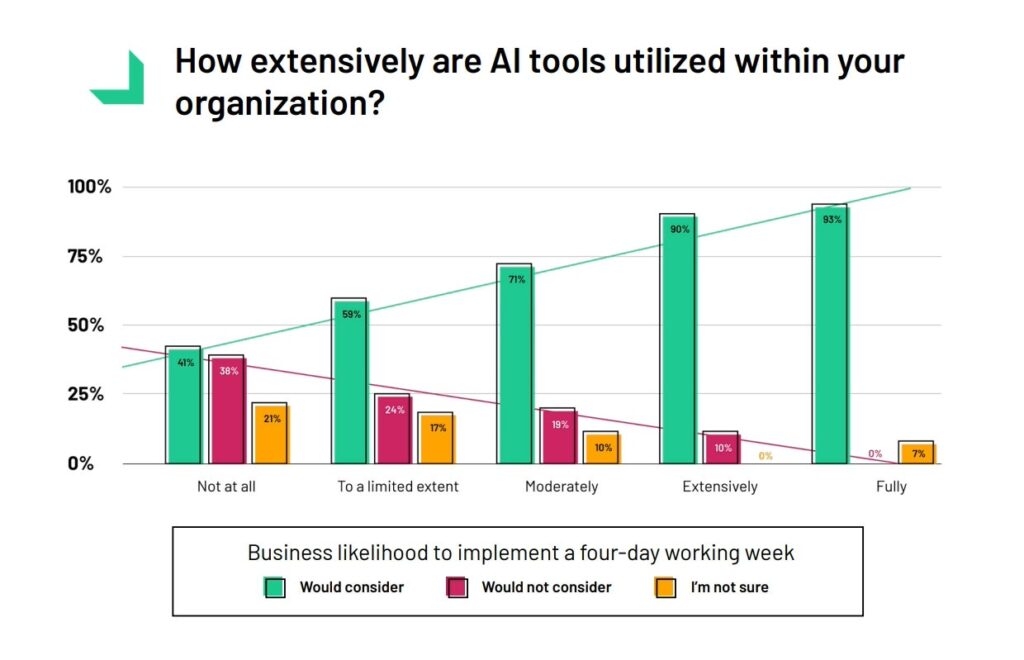
In 2025, the Netherlands officially transitioned to a four-day workweek, adopting a 32-hour workweek model that is reshaping the way people think about work-life balance, productivity, and employment. This significant cultural and economic shift is not just a fringe experiment but a national norm embraced broadly by Dutch society, leading to happier employees, stable productivity, and benefits for companies and the economy alike.
The Dutch Four-Day Workweek Explained
The move toward shorter working hours in the Netherlands did not happen overnight. It reflects decades of evolving labor practices increasingly influenced by women’s participation in the workforce. By 2024, Dutch workers aged 20 to 64 averaged just 32.1 hours per week—the shortest workweek in Europe.
Traditionally, the Netherlands operated under a male breadwinner model with longer workweeks. However, since the 1980s, women’s rising entrance into part-time roles changed the landscape. The country pioneered a system called the “one-and-a-half earner model,” where one parent works full-time and the other part-time, supported by tax breaks and social benefits. This model has now expanded to become mainstream, with not only women but also fathers embracing shorter working schedules such as “papa days” to care for children.
Positive Impacts for Employees and Employers

The four-day workweek in the Netherlands has brought multiple positive outcomes:
- Employee Happiness and Work-Life Balance: With Fridays free, employees enjoy longer weekends, more family time, and improved mental health. Lower burnout rates are reported as workers gain better control over their time. This cultural shift values quality over quantity in hours worked.
- Maintained or Increased Productivity: Despite working fewer hours, productivity per hour remains high. Flexible schedules encourage workers to be focused and efficient during their workdays, disproving the misconception that longer hours always mean better results.
- Low Unemployment and Economic Resilience: The Netherlands maintains a low unemployment rate (around 3.6% as of 2024) partly due to flexible and inclusive work policies. The four-day week model can encourage broader workforce participation, especially among parents and caregivers.
- Benefits for Companies: Businesses benefit from motivated staff, reduced absenteeism, and better talent retention. Companies report that granting flexibility leads to a more engaged and productive workforce.
Why Women Were Crucial Drivers of Change
Women’s advocacy and participation in the labor force played a central role in initiating the four-day workweek shift. As working mothers sought smarter ways to balance their roles, they challenged traditional full-time work models that penalized caregiving responsibilities. This spurred reforms including:
- Tax incentives supporting part-time work
- Social acceptance of reduced hours among men and women
- Adoption of flexible schedules becoming standard practice
This gender-driven transformation created a culture that values work smarter, not harder, leading to the 32-hour weekly norm embraced today.
Lessons for the World

The Netherlands offers a compelling case study for countries considering reduced work hours:
- It challenges the assumption that shorter workweeks harm economic growth. The Dutch economy remains strong, buoyed by high productivity per hour and more workers contributing over longer careers.
- Fostering work-life balance is not just about individual wellbeing but essential for inclusive economic participation, especially for women.
- Flexibility in work schedules can lower unemployment and improve productivity simultaneously, a win-win rarely seen.
Challenges Ahead
Despite remarkable progress, challenges remain:
- Women still disproportionately occupy part-time roles, creating underlying gender inequalities in career advancement.
- Labor shortages in critical sectors like education require strategic solutions to maintain service quality alongside shorter work hours.
The Dutch Model of Work-Life Balance is a Bold Blueprint for the Future

The Netherlands’ bold transition to a four-day workweek has proven transformative, demonstrating that less time at the desk can mean more happiness, equal or improved productivity, and a healthier society. It is a powerful example of how evolving cultural values, especially women’s voices, can reshape work norms for the better.
As the world explores new ways to work post-pandemic and beyond, the Dutch model offers concrete proof that rethinking time is key to unlocking the full potential of people and economies alike.
🧩 Related Articles:
- Glowing Together: How Maryland Communities Are Reviving Firefly Habitats Across the Chesapeake Bay Watershed to Protect Biodiversity and Inspire Environmental Stewardship in the USA
- Beyond the Golden Dome: How South Bend, Indiana, Championed Its Way to Becoming the Cleanest City in the United States 2025
- A Wave of Compassion: How a Community in Digby, Nova Scotia Rallied to Rescue 16 Dolphins
- South Bend, Indiana Named the Cleanest City in America by LawnStarter



